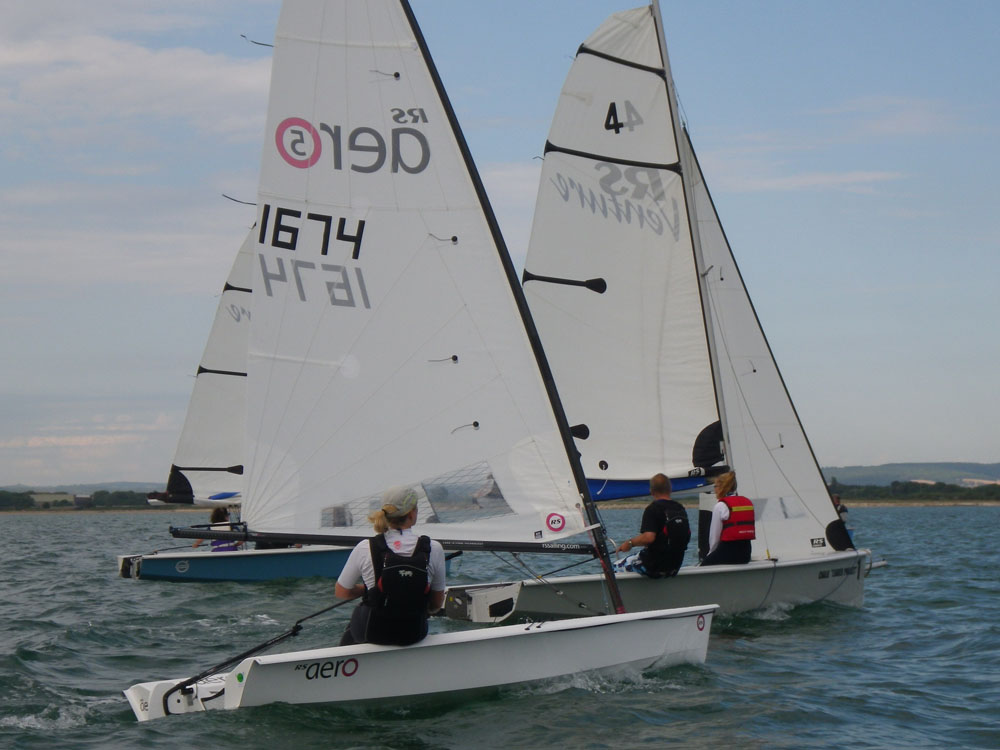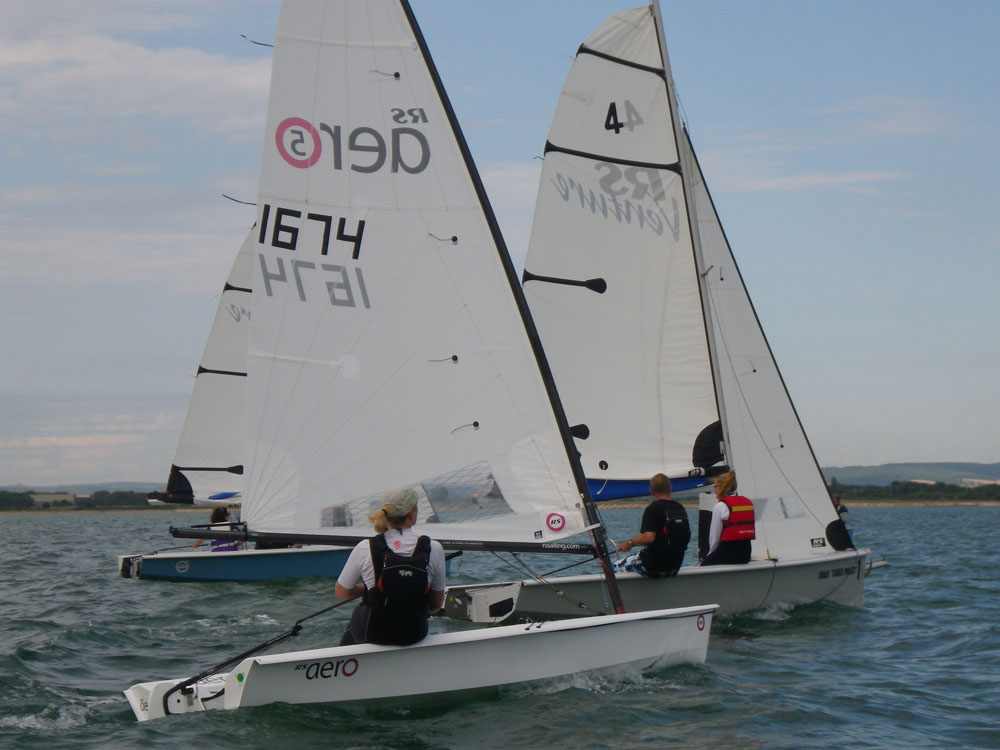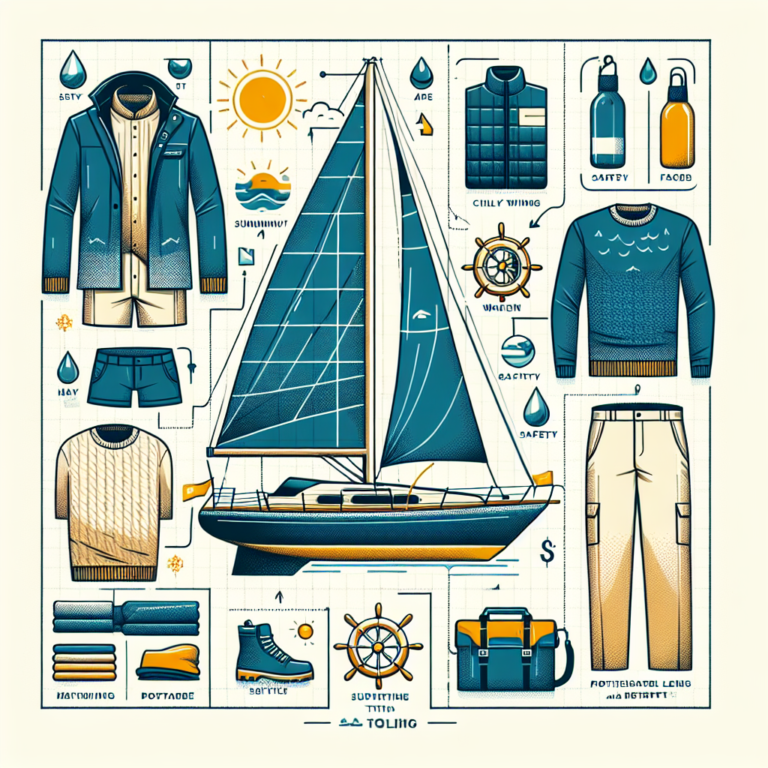Best Small Sailboat For Beginners
So you’ve finally decided to take up sailing and you’re on the lookout for the best small sailboat for beginners. Well, look no further, because in this article, we’ll be covering everything you need to know about finding the perfect vessel to embark on your sailing adventures. From the top features to consider, to the best brands in the market, we’ve got you covered. Whether you’re a complete novice or have some sailing experience under your belt, this guide will help you make an informed decision and set sail with confidence. Get ready to navigate the waters and embrace the exhilarating world of sailing.
Understanding the Basics of Sailing
Sailing is a thrilling and rewarding activity that allows you to harness the power of the wind to navigate the waters. Before embarking on your sailing journey, it is essential to grasp the basic principles of sailing. These principles include learning how to read the wind, understanding boat anatomy, and following safety procedures.
Basic Principles of Sailing
To successfully sail, you need to understand the wind and how it interacts with your boat. The wind plays a vital role in determining the speed and direction of your sailboat. Learning to read the wind involves observing its strength, direction, and any changes in the atmosphere that could affect your sailing experience.
Learning to Read the Wind
Reading the wind requires attentiveness and observation. Look for flags, leaves, or the movement of the water to gauge wind direction. You can also use telltales on your boat’s sails to detect changes in the wind’s direction. By understanding how to read the wind, you can adjust your sails accordingly and optimize your sailing performance.
Understanding Boat Anatomy
Familiarizing yourself with the various parts of a sailboat is crucial for both safety and performance. Key components to be aware of include the mast, boom, mainsail, jib, rudder, and keel. Each part plays a specific role in maneuvering the boat and harnessing the wind’s power. Understanding boat anatomy will help you communicate effectively with your crew members and ensure proper maintenance of your sailboat.
Safety Procedures for New Sailors
safety should be a top priority for all sailors, especially beginners. Before heading out on the water, always check the weather forecast, ensure you have the necessary safety equipment, and familiarize yourself with basic emergency procedures. Follow guidelines such as wearing a life jacket, practicing proper navigation techniques, and staying alert at all times. It is also essential to inform someone on land about your sailing plans to ensure someone knows your whereabouts.
Top Considerations in Choosing a Beginner Sailboat
When choosing a sailboat as a beginner, there are several key factors to consider. These include the size and weight of the boat, its durability, ease of use, and cost. Each of these factors plays a significant role in determining the suitability of a sailboat for beginners.
Size and Weight of the Boat
As a beginner, it is advisable to start with a smaller sailboat. A smaller boat is easier to handle and maneuver, allowing you to gain confidence and develop your sailing skills. Additionally, a lightweight boat will be more manageable for you to handle on your own. Consider your own physical strength and the conditions you plan to sail in when selecting the ideal size and weight of a sailboat.
Durability
Durability is an important consideration when choosing a beginner sailboat. You want a boat that can withstand the elements and potential mishaps without requiring constant repairs. Look for boats made of sturdy materials and check for any signs of wear and tear. Investing in a durable sailboat will ensure longevity and minimize maintenance costs.
Ease of Use
For beginners, it is crucial to choose a sailboat that is easy to operate. Look for a boat that has simplified rigging and controls, making it easier for you to learn the ropes. Consider factors such as the number of sails, the type of rigging, and the complexity of the boat’s systems. A user-friendly sailboat will make your learning experience more enjoyable and less overwhelming.
Cost
Cost is an important consideration when purchasing a sailboat. As a beginner, you may not want to invest a significant amount of money upfront. Research and compare different boat models to find one that offers good value for money. Additionally, consider the ongoing costs associated with owning a sailboat, such as mooring fees, insurance, and maintenance. Balancing the initial cost with the long-term expenses will help you make an informed decision.
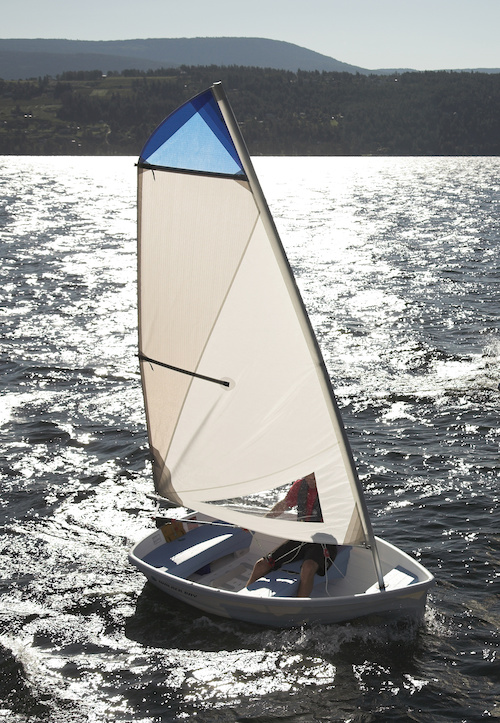
Reviewing Different Types of Small Sailboats
There are several types of small sailboats suitable for beginners. Understanding the differences between these types will help you find the perfect sailboat that aligns with your sailing goals and preferences.
Dinghies
Dinghies are small, single-handed sailboats that are perfect for beginners. They are lightweight and easy to handle, making them ideal for learning basic sailing skills. Dinghies are often used for recreational sailing and racing, providing ample opportunities for skill development.
Day Sailers
Day sailers are slightly larger than dinghies and offer more space for passengers. They are designed for short trips or day sailing adventures. Day sailers provide a comfortable and stable sailing experience, making them suitable for beginners who want to enjoy leisurely cruises.
Small Keelboats
Small keelboats, also known as pocket cruisers, offer a balance between stability and performance. They are larger than dinghies and day sailers, providing more cabin space and amenities. Small keelboats are perfect for beginners who want to transition into longer sailing trips and overnight stays.
Multihulls
Multihulls, such as catamarans and trimarans, are sailboats with multiple hulls. They offer excellent stability and speed, making them ideal for adventurous beginners. Multihulls often require a bit more experience due to their unique handling characteristics, but they can provide a thrilling sailing experience once mastered.
Detailed Analysis of the Best Small Sailboats for Beginners
Now that we have reviewed the different types of small sailboats, let’s take a closer look at some of the best sailboats for beginners:
Sunfish Sailboat
The Sunfish sailboat is a classic and popular choice for beginners. It is compact, lightweight, and easy to handle. With its simplicity and maneuverability, the Sunfish provides an excellent platform for learning the basics of sailing. It is also widely available, making it a convenient option for those looking to purchase a beginner sailboat.
Laser Sailboat
The Laser sailboat is another popular choice for beginners. It offers a simple design and rigging, allowing for easy handling. The Laser is known for its responsiveness to wind and waves, providing an exciting sailing experience. Additionally, there is an active Laser racing community, offering opportunities for competition and skill progression.
RS Zest
The RS Zest is a modern and versatile sailboat designed specifically for beginners. It offers a stable and comfortable sailing experience, making it perfect for those who are new to sailing. The RS Zest features a spacious cockpit and simple rigging, allowing for easy handling and learning. This sailboat is an excellent choice for beginners looking for a modern and reliable option.
O’Day Mariner
The O’Day Mariner is a small keelboat that offers a perfect balance between stability and performance. It is designed with safety in mind and provides a comfortable and spacious cabin. The O’Day Mariner is known for its durability and ease of use, making it an excellent choice for beginners interested in longer sailing trips.
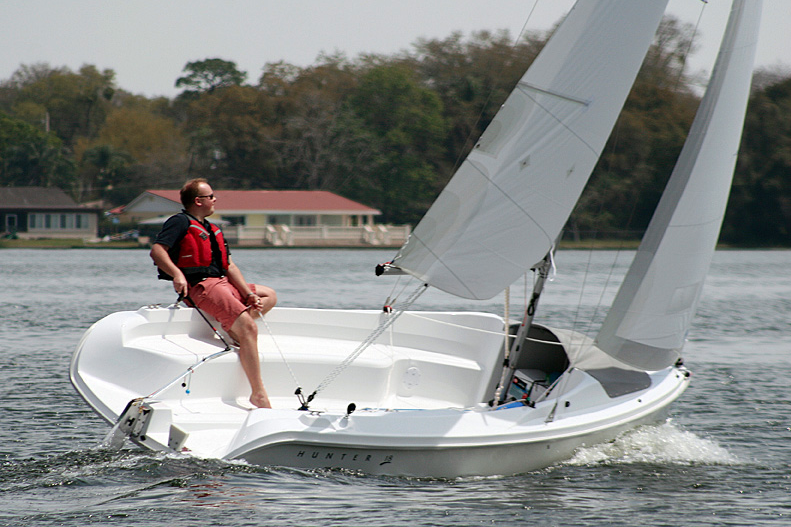
Benefits and Drawbacks of Different Types of Small Boats
Each type of small sailboat has its own set of advantages and disadvantages. Here are some pros and cons to consider:
Pros and Cons of Dinghies
Pros:
- Lightweight and easy to handle.
- Affordable price range.
- Offer excellent maneuverability and responsiveness.
Cons:
- Limited cabin space.
- Requires some physical strength.
- Not suitable for extended overnight trips.
Pros and Cons of Day Sailers
Pros:
- Comfortable and stable sailing experience.
- More spacious than dinghies.
- Suitable for short day trips.
Cons:
- Limited performance compared to smaller sailboats.
- Larger size may require additional crew members for handling.
- May require more storage space.
Pros and Cons of Small Keelboats
Pros:
- Offers a balance between stability and performance.
- Larger cabin space for overnight stays.
- Can handle more challenging sailing conditions.
Cons:
- More expensive than dinghies or day sailers.
- Requires more experience in handling and maneuverability.
- May have higher maintenance costs.
Pros and Cons of Multihulls
Pros:
- Exceptional stability and speed.
- Spacious and comfortable cabins.
- Ideal for those seeking adventure and thrill.
Cons:
- More complex handling characteristics.
- Higher initial and maintenance costs.
- Requires more experience and skill to sail effectively.
Maintenance and Care for Small Sailboats
Proper maintenance and care are essential to keep your small sailboat in good condition. Here are some key areas to focus on:
Basic Boat Cleaning
Regularly cleaning your sailboat will help prevent the buildup of dirt, grime, and saltwater residue. Use mild soap and water to clean the deck, hull, and sails. Avoid using abrasive materials or harsh chemicals that could damage the boat’s surfaces. Additionally, rinse your boat thoroughly after each use to remove any saltwater or debris.
Repair and Replacement of Parts
As a boat owner, knowing how to perform basic repairs and replace worn-out parts is crucial. Regularly inspect your sailboat for any signs of damage or wear and tear. Address minor repairs promptly to prevent them from escalating into larger issues. Keep a supply of spare parts and learn basic repair techniques to ensure you can handle common maintenance tasks.
Storage Options and Recommendations
When not in use, proper storage is vital to protect your sailboat from damage caused by weather conditions or theft. Consider storing your boat in a covered area or invest in boat covers to shield it from the elements. If you don’t have access to personal storage, look for local marinas or boatyards that provide secure storage options. Regularly check on your boat during the offseason to address any maintenance or repair needs.
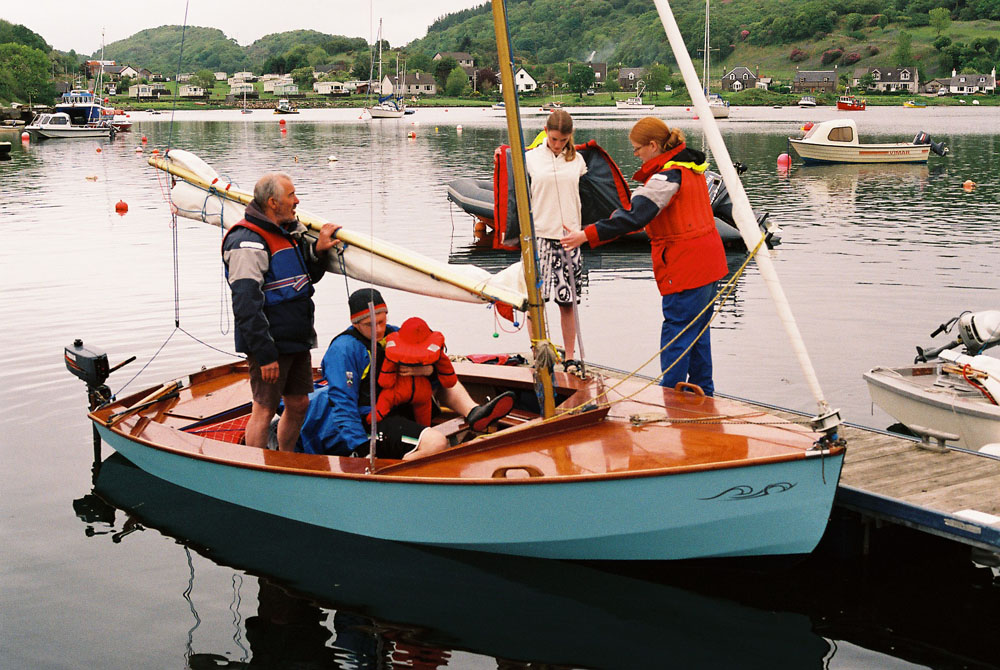
Cost Explained: Buying vs. Renting a Sailboat
Before deciding whether to buy or rent a sailboat, it is essential to consider the associated costs.
Initial Cost
Buying a sailboat requires a significant upfront investment. The cost of a new sailboat can range from a few thousand dollars to tens of thousands, depending on the size, brand, and features. On the other hand, renting a sailboat allows you to enjoy sailing without the high initial cost. Rental prices vary depending on the location, boat size, and duration, but it generally offers a more affordable option in the short term.
Maintenance Costs
Owning a sailboat entails ongoing maintenance costs. These can include mooring or storage fees, insurance, fuel, repairs, and regular maintenance. Renting a sailboat typically covers most of these costs, as the maintenance and insurance are usually the responsibility of the rental company. However, it’s worth noting that rental prices may reflect some of these expenses.
Cost of Renting
The cost of renting a sailboat varies depending on factors such as boat size, location, and duration. Rental prices can range from a few hundred dollars for a day trip to several thousand dollars for week-long charters. While renting saves you from the initial investment, it may become less cost-effective if you plan to sail frequently or for extended periods.
Cost-Benefit Analysis
When deciding between buying and renting a sailboat, consider your long-term sailing goals and financial situation. If you foresee regular sailing excursions and are willing to invest in a sailboat, purchasing may offer better value in the long run. On the other hand, if you plan to sail occasionally or are unsure about long-term commitment, renting provides flexibility and affordability.
Safety Considerations for Small Sailboats
Safety should be a top priority when sailing, regardless of boat size or experience level. Here are some safety considerations for small sailboats:
Emergency Preparation
Before setting sail, familiarize yourself with emergency procedures and protocols. Create a safety plan that includes actions to take in case of adverse weather conditions, equipment failures, or accidents. Ensure you have the necessary emergency supplies onboard, such as life jackets, flares, a first aid kit, and a reliable means of communication.
Safety Gear for Sailboats
Investing in proper safety gear is crucial for small sailboats. Essential safety equipment includes life jackets for all passengers, throwable flotation devices, navigation lights, a functioning horn or whistle, and a fire extinguisher. Additionally, consider installing safety features such as jacklines and harnesses to prevent falls overboard.
First Aid Basics for Sailing
Having a basic understanding of first aid is important for any sailor. Injuries can occur while handling lines, rigging, or engaging in water activities. Consider taking a basic first aid course to learn essential skills such as CPR, wound care, and treatment for environmental emergencies like hypothermia or heat exhaustion. Keep a well-stocked first aid kit on board and ensure it is easily accessible.
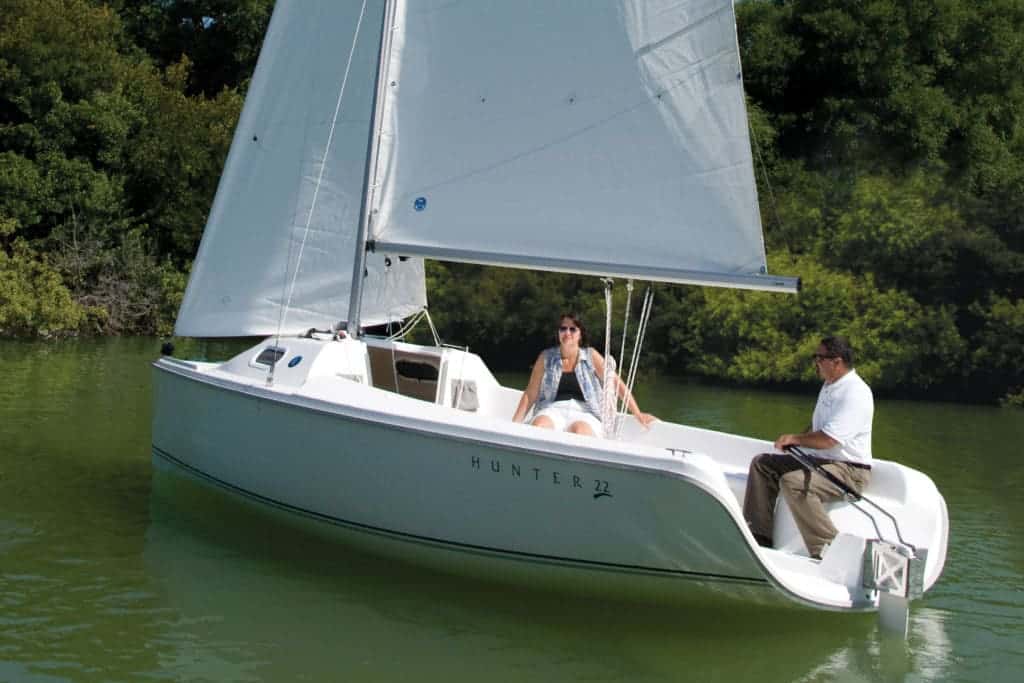
Building Confidence: Training and Practice for Beginners
Building confidence as a sailor involves both training and practice. Here are some ways to enhance your sailing skills and gain experience:
Sailing Schools and Courses
Consider enrolling in sailing schools or courses designed for beginners. These programs provide structured learning experiences and hands-on training with experienced instructors. Sailing schools often offer courses tailored to different skill levels, allowing you to progress at your own pace.
Practice Tips for New Sailors
Regular practice is key to improving your sailing skills. Get out on the water as often as possible and practice various maneuvers such as tacking, jibing, and docking. Experiment with different wind conditions and sailing routes to expand your knowledge and experience. Moreover, try sailing with more experienced sailors who can offer guidance and support.
Building Hours on the Water
Building hours on the water is crucial for gaining confidence and experience. Take advantage of any opportunity to sail, whether it’s joining a sailing club, participating in races, or simply enjoying leisurely cruises. The more time you spend on the water, the more comfortable and competent you will become as a sailor.
Community and Support for Beginner Sailors
Engaging with the sailing community can provide valuable support, advice, and opportunities for socializing. Here are some ways to connect with other beginner sailors:
Joining Sailing Clubs
Sailing clubs offer a welcoming community for sailors of all levels. Joining a sailing club provides access to a network of experienced sailors who can provide guidance and advice. Additionally, many sailing clubs organize social events, races, and regattas, providing excellent opportunities to connect with fellow sailors and learn from each other.
Finding a Mentor
A mentor can be an invaluable resource for a beginner sailor. Seek out more experienced sailors who are willing to share their knowledge and experiences with you. A mentor can provide guidance, answer questions, and offer insights that will accelerate your learning process.
Online Resources and Forums
The internet is a treasure trove of information for beginner sailors. Explore sailing forums, websites, and social media groups dedicated to sailing. Engage with the sailing community online, ask questions, and seek advice. Many sailing enthusiasts are passionate about sharing their experiences and knowledge to help fellow sailors.
Sailing Races and Regattas for Beginners
Participating in sailing races and regattas is an excellent way to challenge yourself and learn from experienced sailors. Many sailing clubs organize beginner-friendly races specifically designed to help novice sailors gain experience and confidence. These events foster friendly competition and camaraderie among sailors, allowing you to form connections with fellow enthusiasts.
In conclusion, sailing is a thrilling and enjoyable activity that can be mastered by beginners. Understanding the basics of sailing is key to a successful sailing experience. By choosing the right sailboat, practicing safety measures, maintaining your boat diligently, and engaging with the sailing community, you can embark on an exciting journey as a beginner sailor. So seize the opportunity, hoist your sails, and let the wind guide you to new adventures on the water!
